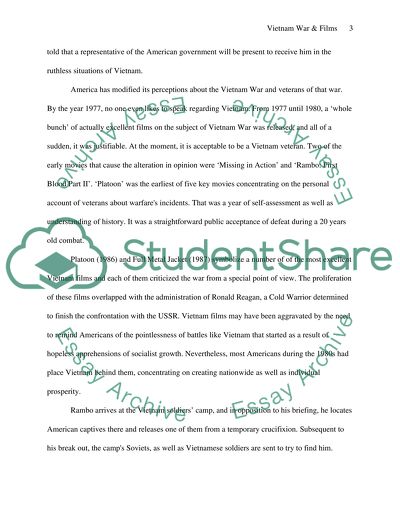Cite this document
(“Vietnam War & Films Essay Example | Topics and Well Written Essays - 2500 words”, n.d.)
Retrieved de https://studentshare.org/visual-arts-film-studies/1390185-vietnam-war-and-films
Retrieved de https://studentshare.org/visual-arts-film-studies/1390185-vietnam-war-and-films
(Vietnam War & Films Essay Example | Topics and Well Written Essays - 2500 Words)
https://studentshare.org/visual-arts-film-studies/1390185-vietnam-war-and-films.
https://studentshare.org/visual-arts-film-studies/1390185-vietnam-war-and-films.
“Vietnam War & Films Essay Example | Topics and Well Written Essays - 2500 Words”, n.d. https://studentshare.org/visual-arts-film-studies/1390185-vietnam-war-and-films.


